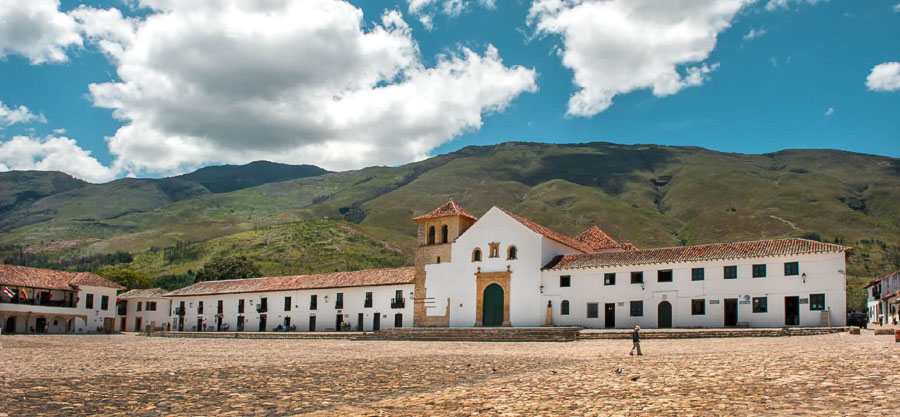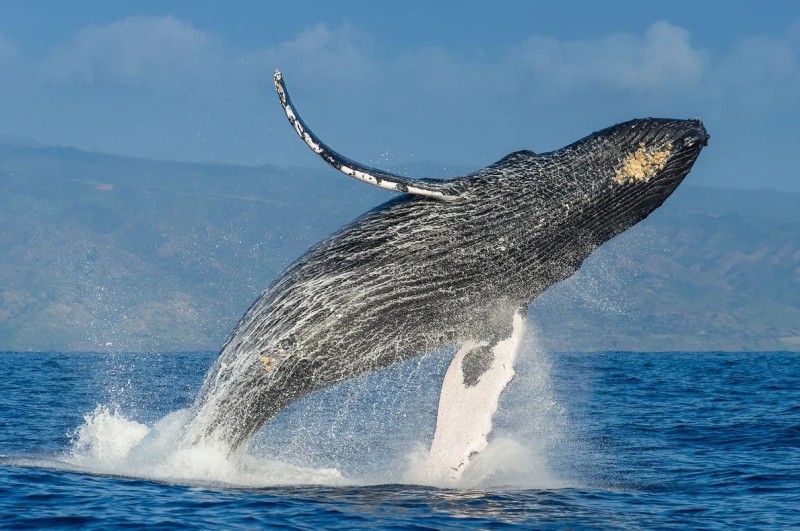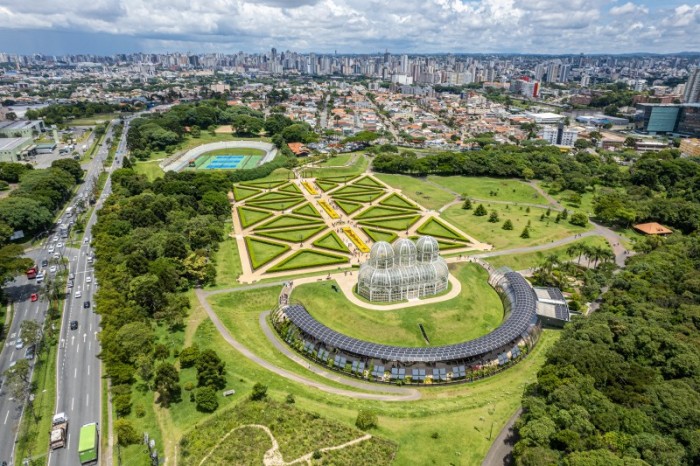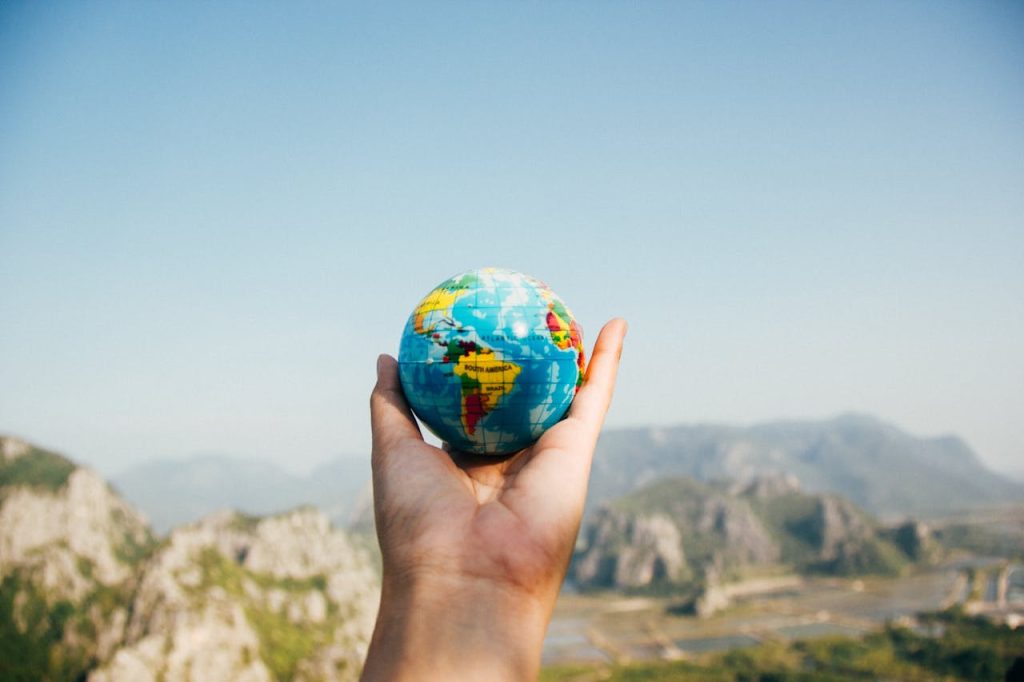In the mountains of the Boyacá department, a few hours north of Bogotá, Villa de Leyva is a veritable nugget of Colombian heritage. With its cobbled streets, whitewashed colonial houses and majestic central square, this village, which recently celebrated its 450th anniversary, is an invitation to travel back in time.
A Village of Timeless Charm
The peaceful atmosphere of Villa de Leyva is palpable as soon as you set foot in its narrow streets. The central square, considered by many to be the largest in Latin America – dating back to colonial times – is surrounded by historic buildings that bear witness to the cultural richness of the area. At night, the soft lights that illuminate the square offer a bewitching spectacle, where locals and visitors mingle in a silent dance.
As well as its architectural charm, Villa de Leyva and the surrounding area have plenty to offer:
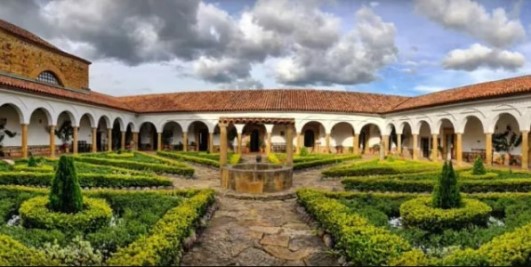
Iguaque Natural Park: To explore Iguaque Natural Park is to embark on an adventure through a variety of landscapes, from misty forests to unique paramos. At the summit, the Iguaque lagoon awaits, surrounded by legends and considered to be the birthplace of humanity according to Muisca cosmogony. This sacred lagoon was once the centre of rituals and ceremonies.
Convento Ecce Homo: Nestling in the heart of the valley, the Convento Ecce Homo is a treasure trove of architecture and history. Built in the early 17th century by the Dominican order, its thick adobe walls and wooden ceilings bear witness to the arts and crafts of the colonial era. Walking through its silent corridors and peaceful patios, you can almost hear the echoes of the prayers and chants that have echoed here for centuries.
The Dinosaur Park: A journey back in time awaits visitors to the Dinosaur Park. This region, rich in palaeontological discoveries, has revealed fossils that tell the story of Colombia‘s prehistoric history. The highlight of the park is undoubtedly the gigantic marine reptile, a Kronosaurus, whose 12-metre skeleton is on display in the “El Fossil” museum. It’s a fascinating reminder of the time when these creatures dominated the seas.
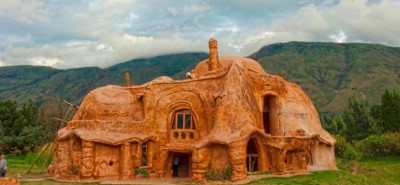
El Infiernito: The standing stones of El Infiernito are the silent guardians of a distant past. This ancient Muisca astronomical observatory, made up of menhirs and sculpted stones, bears witness to the ingenuity and knowledge of the indigenous peoples. They used this site to track the movements of the stars and planets, guiding their agricultural activities and religious ceremonies.
Casa Terracota: Designed by Octavio Mendoza Morales, this architectural wonder is considered to be the largest ceramic house in the world, built entirely from terracotta. It symbolises a perfect fusion between art and the environment, transforming the earth into a habitable space. Its organic shapes and varied textures invite us to reflect on harmonious coexistence with nature. A true ode to creativity and sustainability.
Local crafts: a wealth to discover
Villa de Leyva is also a mecca for craftspeople. The virgin wool knitting workshops, where the “ruanas” (Colombian ponchos) are made, are a spectacle in themselves. The craftsmen, true guardians of tradition, love to show off their exceptional skills.
When the sky becomes a show
One of the lesser-known charms of Villa de Leyva is its starry night sky. Thanks to the region’s low light pollution and its altitude, the village has become a prime location for astronomical observation. Throughout the year, astronomy enthusiasts gather here, carefully lining up their telescopes on the uneven cobblestones of the main square. This is particularly true in February, during the Villa de Leyva Astronomy Festival. What’s more, this same square serves as the backdrop for the Wind and Kite Festival in August, adding another dimension to the region’s cultural richness.
From its cobbled streets to its breathtaking scenery, every moment spent in Villa de Leyva is a memory engraved forever. Let yourself be carried away by the timeless charm of this village, where history, nature and culture blend harmoniously.

